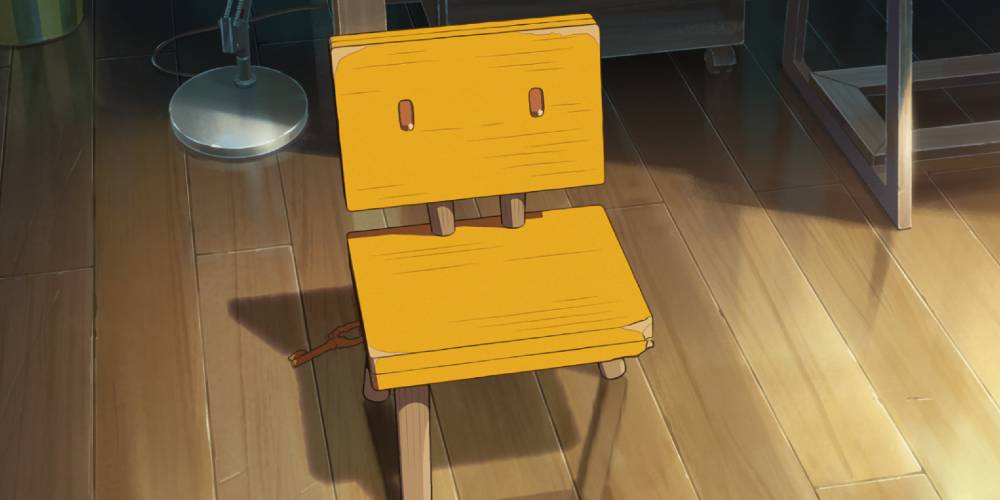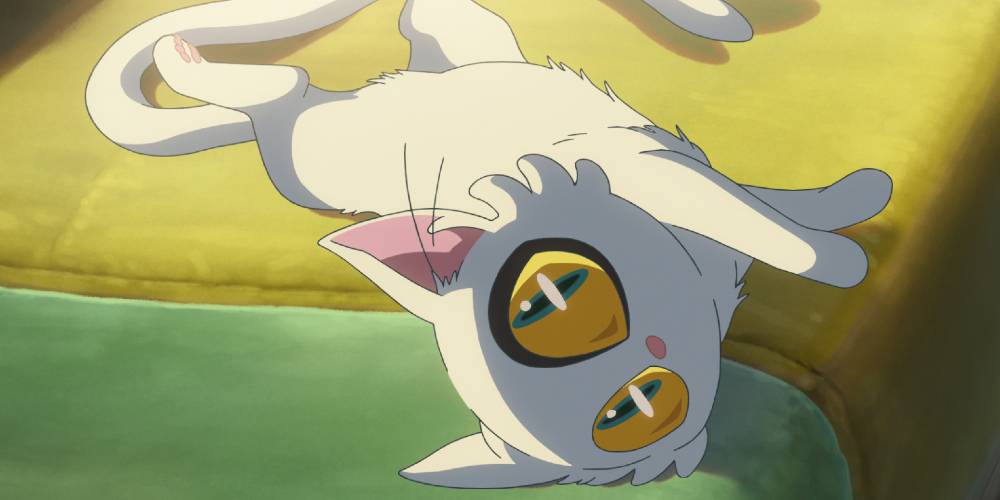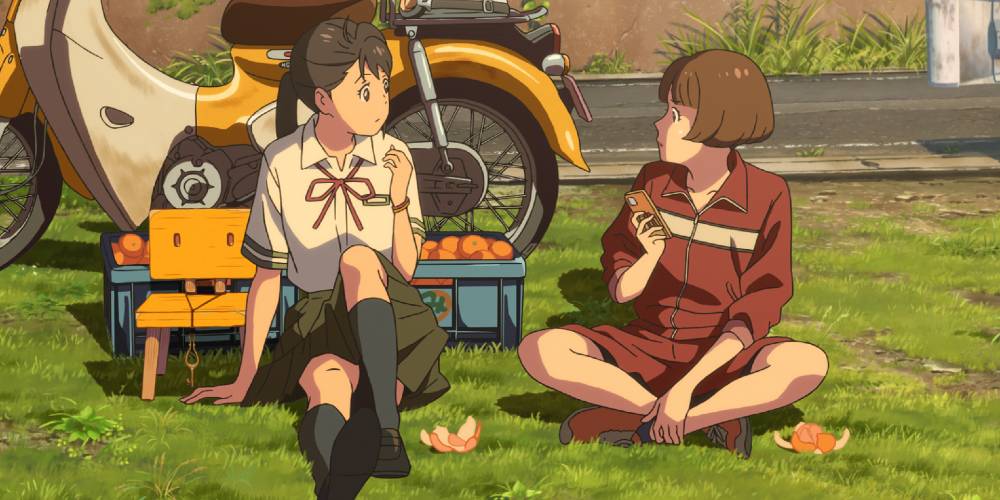Read also:
How to Watch FX Live Without CableHow To Watch AMC Without CableHow to Watch ABC Without CableHow to Watch Paramount Network Without CableMaster animator Makoto Shinkai deftly wields farce and the open road alike in a striking coming-of-age adventure anchored by sumptuous animation and a compelling heroine.
Like the Oracle said to Neo, “Everything that has a beginning has an end.” But “ending” is not synonymous with “annihilation.” Whether it’s a literal, physical remnant (say, an amusement park that remains standing even years after being shut down) or patterns that folks continue out of habit or the hopes of feeling something (think Yūsuke Kafuku continuing to rehearse for Uncle Vanya with his late wife’s recording years after her death in Drive My Car—whose co-lead Tōko Miura was a key contributor to the soundtrack of Makoto Shinkai‘s last film, Weathering With You).
Physical remnants are often difficult to (literally) navigate. Mental and emotional remnants can be even thornier. With Suzume, his seventh feature film, Shinkai uses the former to probe the latter, particularly as a response to trauma. He does so via an odd couple road story that is as much a gleefully absurd farce as it is a stirring character drama. It’s an excellent movie, full of stunning visuals, creative and well-escalated action, and thoughtful character work.
Suzume Iwato (Nanoka Hara in Japanese and Nichole Sakura in English) is doing alright. She lives with her aunt Tamaki (Eri Fukatsu and Jennifer Sun Bell) in a lovely seaside town in Kyushu. Their mother/daughter relationship is loving and generally solid—though not without tension. She’s got friends with whom she has a comfortable rapport and takes pleasure in the little things. And she’s carrying around a great deal of unresolved trauma. Suzume survived the 2011 Tōhoku earthquake. Her mother did not, and while Suzume’s long accepted her mother’s death, unconsciously, she’s still carrying the grief, terror, and sorrow.
But again, for the most part, Suzume’s doing alright. Until the day that a handsome stranger (Hokuto Matsumura and Josh Keaton) asks if there are any ruins in the area. There is indeed a ruin—a long-abandoned bathhouse district. Curiosity and something else she can’t quite pinpoint leads Suzume to the district herself, which in turn leads to her helping the stranger—Souta Munakata—seal a mystical capital W Worm back behind a capital D Door.

And then, just as the two have had a chance to catch their breath, Souta gets turned into/trapped in Suzume’s childhood chair by a cute, capricious cat god named Daijin (An Yamane and Lena Josephine Marano) who’d rather play with Suzume than fulfill his duty to keep the Worm sealed. Thus Suzume and Souta give chase—both to catch Daijin and get him to turn Souta back into a person and to keep the Worm from breaking out and ravaging Japan via the earthquakes that fall in its wake.
Suzume is a gorgeous film, one that demonstrates Shinkai and his creative collaborators’ visual flexibility. 2016’s Your Name. bounced between Tokyo and the rural town of Itomori. 2019’s Weathering With You was set predominantly in Tokyo. While Suzume does feature an extended sequence in Tokyo, it’s a road movie whose major stops are suburban. And its key setpieces take place in abandoned areas—not yet overcome by nature but no longer shaped by the constant presence of people. Each is desolate, but their desolations are unique—their looks are familiar, not repetitive. Urban exploration fans are in for a treat.
Character animation is likewise strong—most immediately for Souta and Daijin. In a recent Q&A with the British Film Institute’s Justin Johnson, Shinkai noted that “the living chair in the film came from his idea of a character who would be entertaining just in how it walked, with the animators using Pixar’s Luxo Jr. logo as a reference.” Souta totters and gallops, backed by some excellent sound design. Daijin is downright bouncy, zipping along rooftops and rollercoaster railings, his massive eyes and giant alternatively charming and menacing grin a shrewd deployment of cartooning—emphasizing both his outsize emotions and his disconnect from humanity.

While Suzume herself may not be a supernatural being who can move in impossible ways, her animation is similarly striking, particularly when she’s on edge—not actively in action, but not at rest either. She’s tense, watchful, and ready to move but hoping that she doesn’t have to. An uneasy stillness—one that’s key to her character. It’s a really excellent piece of visual storytelling and one that rewards multiple viewings. Even before getting entangled with the supernatural, Suzume keeps herself on guard without noticing.
Shinkai’s scriptwork is similarly strong. Suzume and Souta make for a likable odd couple—the dutiful young man and the searching young woman, taking in the world even as they scramble to catch up with Daijin. As with Your Name., Shinkai’s got a knack for farce. By embracing the absurdity of a three-legged chair chasing a magical cat, rather than opting for ironic detachment, he crafts cackle-worthy physical comedy and delightfully cringe-inducing character work (mostly when Souta and Suzume wind up babysitting two rambunctious twins).
Taking Souta’s transformation at face value (sorry) also clears the way for Suzume‘s dramatics and character work to succeed. Suzume’s dedication to restoring him progresses from obligation to the act of a friend to something more, and Souta’s transformation makes shutting Doors on the Worm both more difficult and more urgent—and as the Worm grows stronger, so too do the consequences of its potential escape and Suzume’s unprocessed trauma as a disaster survivor. It’s moving thoughtful work.

I’m particularly taken with the conversations Suzume ends up having with the folks—mostly women—she and Souta meet on their journey. In the time that they’re together, they pull her out of her comfort zone, out of the shell she’d unknowingly built around herself. They make her world bigger and better for it. Put simply, it’s lovely character work—and often quite funny.
I dig Suzume. While my favorite of Shinkai’s modern works remains Weathering With You, this is a darn fine film—gorgeously animated and crafted with care towards its characters and their journies. Check it out.
Suzume is now playing in theaters.